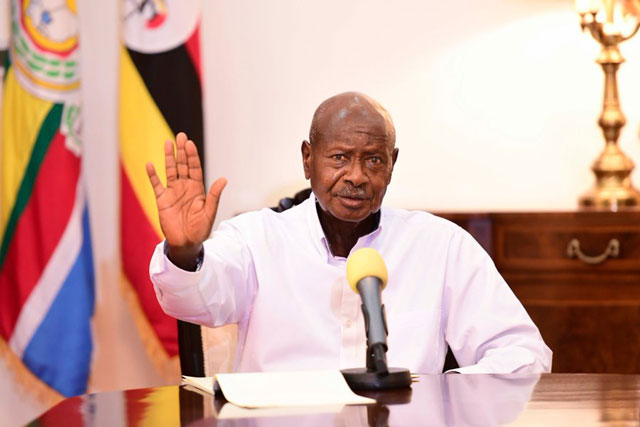
Kampala, Uganda | THE INDEPENDENT | Ugandan health specialists have downplayed fears that the African continent will be wiped out by coronavirus –COVID-19. They say that a number of countries, Uganda inclusive have already put in place enough mechanisms to reverse the havoc that the deadly virus would wreck on the continent.
This comes in the wake of a report by the Economic Commission for Africa indicating that over 1.2 billion Africans would be infected and 3.3 million would die in the total absence of travel guidelines and lockdown interventions this year. The figures would spell doom for a continent with a population of 1.3 billion people.
However, the report titled COVID-19: Protecting African Lives and Economies adds that with the interventions in place, the continent will have 122.8 million infections, 2.3 million hospitalizations and 300,000 deaths. It shows that an additional 29 million people will be pushed into extreme poverty as the pandemic continues to impact on the Continent’s struggling economies whose growth is expected to slow down from 3.2 percent to 1.8 percent in a best-case scenario.
Across Africa, there are 21,990 cases so far reported with 1,120 deaths. The highest number of infections have been recorded in South Africa (3,158), Egypt (3,144), Morocco (2,855) Algeria (2,629), and Cameroon (1,017). Lesotho and Comoros have not recorded any case so far. Uganda has so far recorded 55 cases.
Prof David Serwadda, a public health specialist says that African heads of state have exhibited exemplary leadership becoming the face of the struggle to tame the pandemic, a move he says signifies the commitment and political will to deal with the threat. He adds that evidence shows that lockdowns have better chances of reducing the spread of the disease.
Ugandan President Yoweri Museveni has addressed the country eleven times over the past month, reminding Ugandans on how to avoid contracting the coronavirus disease. On all occasions, the president has emphasized measures to stop the spread of the disease and maintained a ban on communal prayers and congregations of any kind.
“When we look at the cases in countries that instituted lockdowns early and those that did not, the numbers are clear. In countries like Uganda where lockdowns were declared early, fewer numbers are being reported. For those that delayed like Italy, it is a different story there,” he said.
The low infection rate in Africa has raised a number of questions and theories with some people relating it to high temperatures and humidity. But Dr Misaki Wayengera, a virologist says that it is too early for such presumptions to be made. “This is a new disease. There are so many things that are not known about it. Talk that Africans are immune due to the skin colour or weather patterns is yet to been proven by Science and remains a talk for now,” he said.
But despite these positive views, the World Health Organisation says that more needs to be done in terms of training health workers to be ready to deal with the pandemic. Dr Tedros Adhanom Ghebreyesus, the Director-General of the World Health Organisation says that no country is or was prepared to deal with the disease and that poor preparation has left so many health systems weak.
He adds that previous outbreaks in many African countries like Ebola, Marburg gives them a unique position to handle the disease but stresses that the lockdown measures and personal distancing measures should be followed up by testing and tracing all suspected cases.
Measures in Other Countries;
In neighbouring Kenya, President Uhuru Kenyatta said that he would go to any lengths to respond to the pandemic adding that stiffer measures would be enforced to contain the coronavirus. Kenya also closed all schools, banned all public gatherings and also closed air space to all inbound and outbound traffic. The country has also put in place curfews in four areas with high reported COVID-19 cases.
In Tanzania, physical distancing measures were put in place and unnecessary gatherings were stopped. All flights entering the country were also suspended. However, unlike Uganda and Kenya which have closed their borders, Tanzania has left its borders open on humanitarian grounds. Churches and mosques are also still open.
In South Africa, President Cyril Ramaphosa declared a national state of disaster which led to the closure of schools in the country. He also issued a 39-day national lockdown which started on March 25, 2020 and is scheduled to end on April 30, 2020. The country has also introduced 60 mobile testing vans with an aim to increase the testing capacity of the country.
Similar measures have been instituted in other African countries. Madagascar and Ghana have completely locked down selected regions and towns, while Senegal, Mauritania, Guinea, Mali, Ivory Coast, Burkina Faso and Niger have imposed states of emergency and night-time curfews.
Countries like Lesotho with no confirmed cases of the disease have also declared a three-week lockdown that is scheduled to end April 21, 2020. The country has also restricted travel into and out of the country from neighbouring countries as such South Africa.
Prof Serwadda says that such measures are key to Africa’s triumph over the disease adding that Africa’s young population could equally contribute to low deaths rates. “COVID-19 is not going to be as disruptive in terms of number of lives in Africa as many commentators had predicted. The age structure when you look at the epidemiology and case fatality rate by age, our population is mainly made of the young who are not highly affected by the disease,” he said.
However, Dr Elizabeth Ekirapa, from the department of health policy, planning and management at the Makerere School of Public Health says that a number of Ugandans will be hit highly by the extended lockdown period.
“The lockdown was extended for another 21 days and projections from the Ministry of Finance and other monetary institutions show that at least 2.6 million Ugandans are going to be pushed into poverty. The numbers look manageable but they are not,” she said.
*****
URN
 The Independent Uganda: You get the Truth we Pay the Price
The Independent Uganda: You get the Truth we Pay the Price


